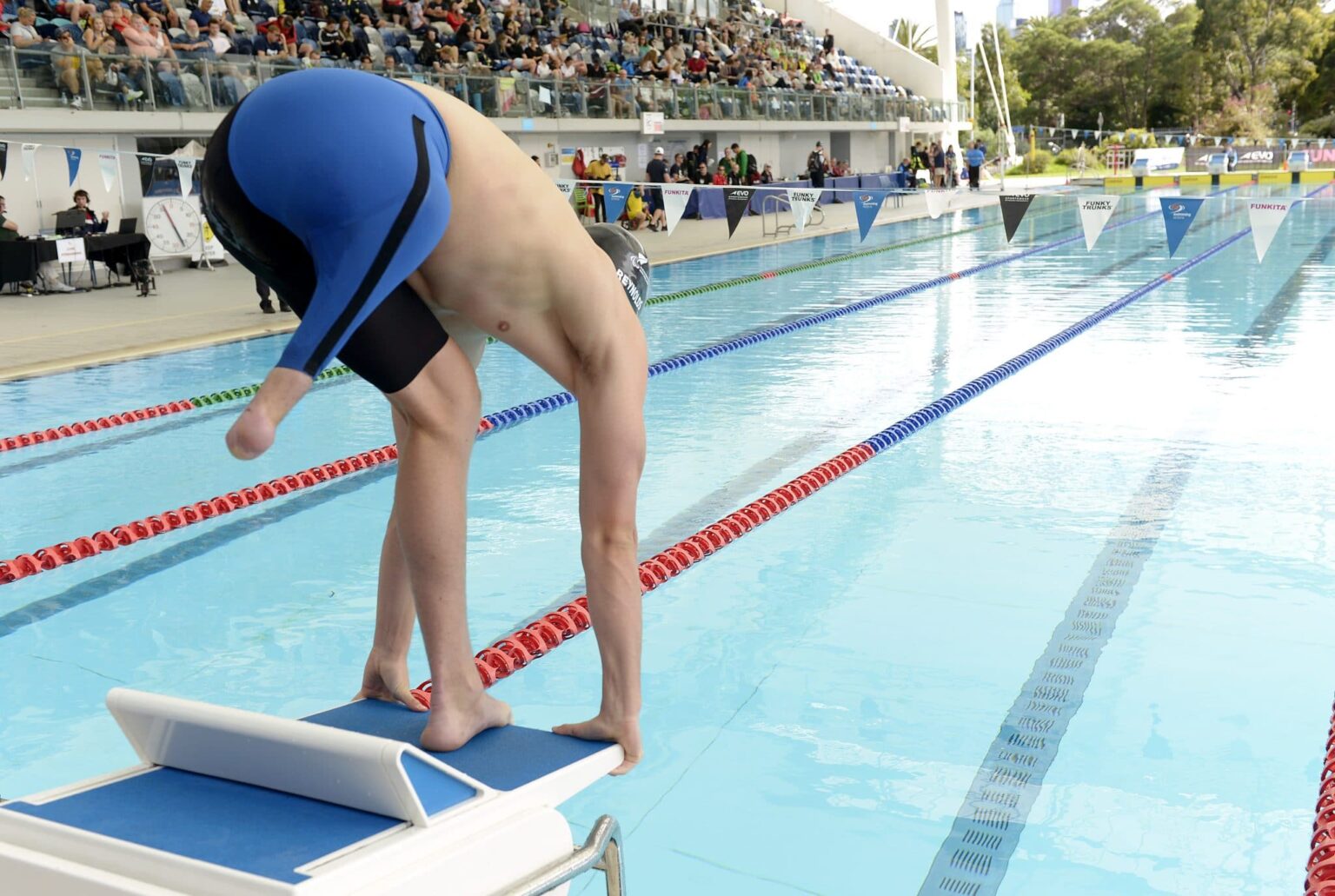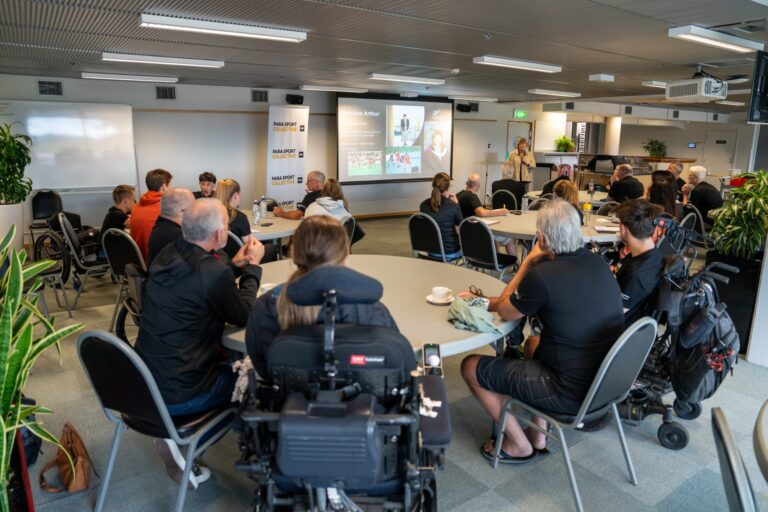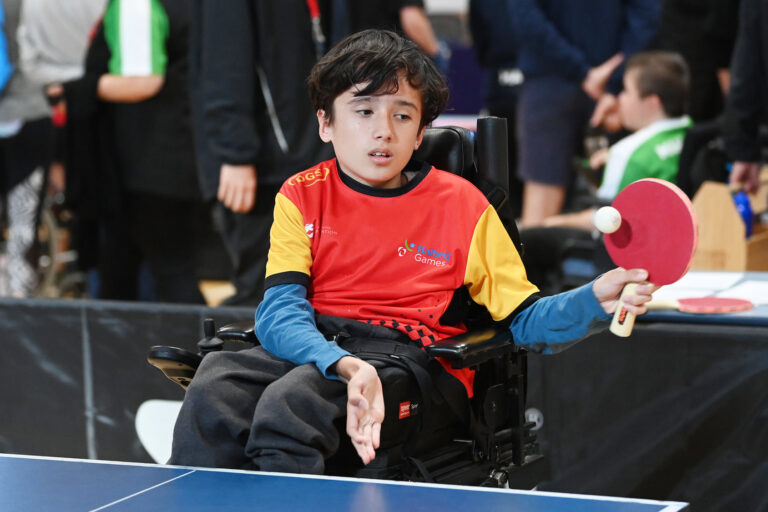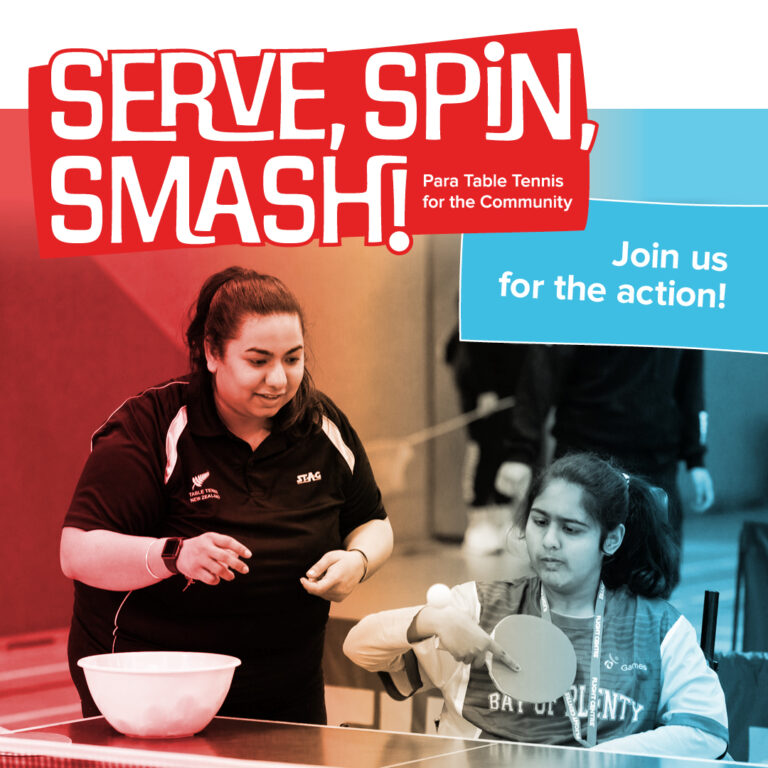We often get asked about the classification for Para athletes and what it means to be a Para athlete so we wanted to clear up a few key questions relating to Para sport and Para athletes which will hopefully give you a better understanding of sport within the Paralympic Movement for disabled people.
Athletes competing in Para sport (Para athletes) have a health condition that presents as an impairment and leads to a competitive disadvantage in sport.
The importance of classification
Classification is integral to Para sport as it provides a structure for fair and equitable competition within the Paralympic Movement.
Classification groups Para athletes into sports classes, according to how much their impairment affects their ability to carry out the fundamental activities in a specific sport.
The purpose of classification is to define who competes in Para sport and to ensure that the impact of impairment in each event is minimized.
Classification ensures the success of an athlete is determined by skill, fitness, power, endurance, tactical ability, and mental focus.
All Para athletes wishing to compete in Para sport must have a sports specific class.
Classification is sport-specific because impairment affects the ability to perform in different sports to a different extent. As a consequence, a Para athlete may meet the criteria in one sport but may not meet the criteria in another sport.
For more information, check out Classification in Para sport – Paralympics New Zealand
What is the difference between a Para athlete and a Paralympian?
A Para athlete is an athlete that has a disability or impairment that makes them eligible to compete in Para sport.
The ultimate goal for many Para athletes is to represent their country at a Paralympic Games.
The Paralympic Games take place every two years (summer and winter) and is one of the most competitive multi-sport competitions in the world. This pinnacle event includes over 4,500 Paralympians at the summer Paralympic Games and over 700 Paralympians at the Paralympic Winter Games all aiming to be the best they can be and through their performances, changing perceptions of disability.
A Para athlete becomes a Paralympian once they have represented their country at the Paralympic Games and that is a title they carry with them for the rest of their lives. To date 238 Paralympians have proudly represented New Zealand.
Para athlete development
The journey from initial involvement in Para sport to winning a Paralympic medal involves a number of different stages. For new Para athletes, the road ahead may seem like an adventure into the unknown.
To help alleviate the uncertainty, check out how the Getting started in Para sport page which describes the various phases of Para athlete development and introduces the various programmes of support available at each stage.
There are seven key phases of Para athlete development:
- Explore
- Engage
- Extend
- Prepare
- Perform
- Podium
- Excellence
From time to time New Zealand will see an exceptional Para athlete who consistently achieves gold medal results across multiple Paralympic cycles. Para athletes demonstrating sustained podium success who are active Para sport Ambassadors in New Zealand are considered to have reached the pinnacle of the Para athlete Development Pathway, the Excellence phase.
Paralympian #166 Sophie Pascoe and Paralympian #158 Adam Hall are two inspiring examples of Para athletes in the Excellence phase.
Dame Sophie Pascoe is an eleven-time Paralympic gold medallist and multiple World Champion in Para swimming. At the last Paralympic Games in Tokyo, Dame Sophie added two golds, a silver and a bronze to her already impressive medal tally at the Paralympic Games, bringing her total medal count to 19. This success has now made Sophie the most decorated New Zealand Paralympian ever!
Adam Hall has represented New Zealand five times at the Paralympic Games in Torino 2006, Vancouver 2010, Sochi 2014, PyeongChang 2018, and Beijing 2022 taking the gold medal in standing slalom at both the Vancouver 2010 and PyeongChang 2018 Paralympics. At the 2018 PyeongChang Paralympics Adam received the Whang Youn Dai Achievement Award, given to only two Paralympians who best embody the spirit of the Paralympic movement, and is the only New Zealander ever to have received it.

At PNZ we and our members provide the processes, programmes, and support to give all Para athletes the best possible chance of reaching the Excellence phase.
Summary
To help more Para athletes reach the latter phases of our development pathway and lead New Zealand Paralympic Teams to the Paralympic Games, we rely on the support we receive through government funding, grants from trusts and foundations, donations, commercial partnerships, and gifts in wills which make our Para sport, community and advocacy programmes possible. We remain incredibly grateful for any support received. You can help too, by visiting Support Us or Donate Now.
First published on 20 January 2021 and republished on 31 July 2024.



























